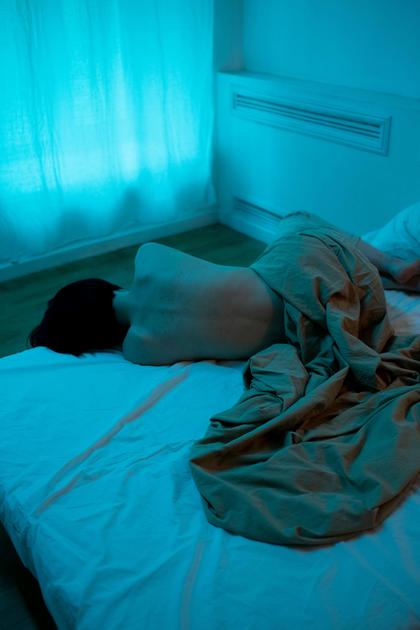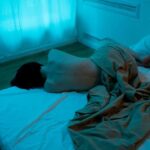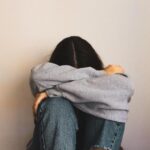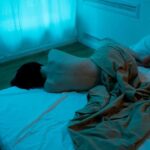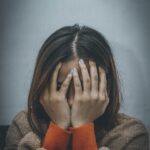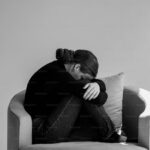Have you ever noticed how hair loss can often accompany restless sleep? Many women, especially over 30, face this silent struggle. The connection between sleep and hair health is often overlooked, yet it can play a crucial role in understanding your body’s signals. In this article, we will delve into the hidden relationship between these two issues and explore effective strategies to combat them.
Understanding Hair Loss in Women
Hair loss can feel like an unexpected blow, especially for women who often find a part of their identity intertwined with their hair. There are many factors that contribute to hair loss among women, including genetics, hormonal changes, and medical conditions. It’s essential to be aware that hair loss is not merely a cosmetic issue; it can significantly impact a woman’s self-esteem and emotional well-being.
Research shows that approximately 40% of women experience noticeable hair loss by the age of 40. Conditions such as telogen effluvium, where hair sheds excessively during stressful events, and androgenetic alopecia, also known as female pattern baldness, are common. Understanding the root cause of hair loss helps in devising effective solutions and lets women know they’re not alone.
The Impact of Sleep on Hair Health
Sleep is often underestimated when discussing hair health. It plays a crucial role in various body functions, including hair growth. During sleep, the body repairs itself, rejuvenates cells, and maintains hormonal balance, all of which are vital for healthy hair.
Studies indicate that lack of sleep can lead to conditions such as increased stress hormones, which in turn can expedite hair loss. Women must recognize the importance of restorative sleep as a foundation for overall well-being, including maintaining luscious hair.
Why Sleep is Often Overlooked
In our fast-paced world, sleep is often one of the first things to be sacrificed. Women juggle numerous responsibilities—from careers to family. As a result, sleep may become inconsistent, leading to chronic sleep deprivation. Unfortunately, the correlation between sleep and hair loss might not be immediately obvious, making it easy to overlook.
Women might find themselves caught in a cycle, believing they don’t have time to sleep well when, in reality, prioritizing sleep could lead to better hair health, reduced anxiety, and overall improved life quality.
Emotional Well-Being and Hair Loss
Emotional distress can also take a toll on hair health. The pressure from societal standards and the stigma around hair loss amplify the emotional struggles many women face. When experiencing hair loss, it’s common for women to feel self-conscious, leading to anxiety or depression.
It’s necessary to care for one’s emotional well-being alongside physical health. Engaging with support groups, seeking therapy, or simply talking to friends can foster resilience and a sense of community. These interactions can help alleviate feelings of isolation and promote a healthier mindset regarding hair loss.
How Poor Sleep Affects Hormones
Hormonal imbalance is a leading contributor to hair loss in women. Sleep deprivation interferes with the body’s ability to regulate hormones effectively. Specifically, it can lead to an increase in cortisol, the stress hormone, which can trigger shedding and thinning hair.
Moreover, sleep plays a fundamental role in the production of melatonin and growth hormone, both essential for hair growth. Hence, prioritizing quality sleep enables women to facilitate the hormonal balance required for supporting hair health.
The Role of Stress in Sleep and Hair Loss
Stress is a double-edged sword that can exacerbate both sleep issues and hair loss. When a woman is under stress, her body reacts by producing hormones that can hinder both sleep quality and hair renewal. The cycle continues when the resulting hair loss causes more stress, leading to further sleep disruption.
Recognizing the signs of stress and finding effective management strategies, such as mindfulness, meditation, or yoga, can serve as protective shields for both sleep and hair health. Even making simple changes to the daily routine can lead to significant improvements.
Practical Tips for Better Sleep
If you’re struggling with sleep, there are several practical steps you can take:
- Create a Sleep Schedule: Go to bed and wake up at the same time every day.
- Design a Relaxing Bedtime Ritual: Engage in calming activities, such as reading or taking a warm bath before bedtime.
- Limit Screen Time: Disconnect from electronic devices at least one hour before bed.
- Maintain a Comfortable Sleep Environment: Your bedroom should be dark, quiet, and cool for optimal rest.
- Limit Caffeine and Nighttime Snacks: Avoid consuming stimulants close to bedtime.
Finding your rhythm for better sleep can create a solid foundation for enhancing hair health.
Nourishing Your Hair from Within
Besides focusing on external treatments, internal health cannot be overlooked. Nutrients such as vitamin D, omega-3 fatty acids, and biotin are essential for healthy hair. Incorporating foods rich in these nutrients, such as salmon, spinach, and nuts, can significantly benefit hair growth.
Furthermore, maintaining hydration and a balanced diet can go a long way toward fostering both healthier hair and improved sleep quality. Many women find that when they eat better, they feel better in all aspects, including sleep and hair health.
Real Stories of Women Overcoming These Challenges
It’s inspiring to hear stories from women who have successfully navigated the challenges of hair loss and sleep disturbances. Many found that by prioritizing sleep and stress management, they not only improved their hair health but also rediscovered their confidence.
“I can’t emphasize enough how much better I felt after focusing on my sleep. My hair stopped falling out, and I felt more like myself,” shared a woman who faced significant hair loss due to stress and sleep deprivation. These testimonials serve as a beacon of hope for those feeling overwhelmed.
Taking Steps Towards Healthier Hair and Restful Sleep
Every woman deserves to feel confident and vibrant, regardless of age or hair condition. By recognizing the links between hair loss and sleep, as well as implementing effective strategies, a better quality of life is achievable.
If you find yourself resonating with these challenges, remember that you’re not alone. Many women are taking proactive steps to restore both their hair health and sleep. See here how many women are resolving this without heavy medications.
It’s possible to embark on this journey through straightforward practices—many women have done it. You can, too!

